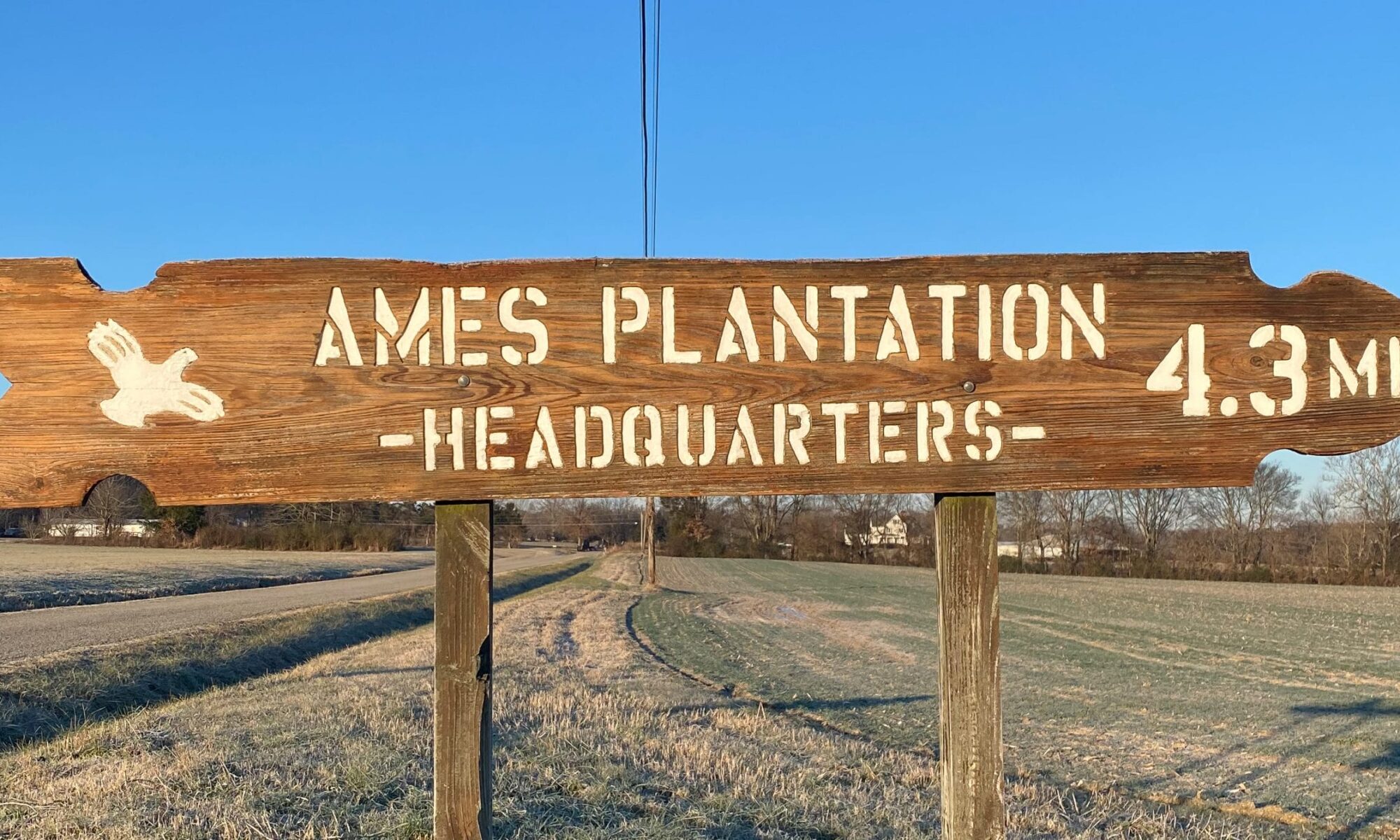
Partnership Will Restore Conditions to Sustain Natural Quail Populations
GRAND JUNCTION, Tenn. – Bobwhite quail and other wildlife will benefit from a new partnership centered at Ames Plantation in Grand Junction, Tennessee, home of the National Championship field trial for bird dogs. The 6,000-acre quail field trial course on Ames will serve as a demonstration site and will be actively managed with various techniques, including prescribed fire to restore the plants and conditions quail need to thrive.
Wild quail once flourished on the farms and open woodland savannas of the Mid-South. However, habitat loss due to changes in farming practices and land development over the past several decades has caused significant declines in quail populations throughout the region.
Ames has been home to the National Championship field trial since 1915, hosting qualifying dogs and trainers from across the country to judge their ability to find and point quail.
Over the last twenty years, facing declines in wild quail, the National Championship and other field trials hosted at Ames have relied on released pen-reared bobwhites. The released quail allowed the events to continue, but they don’t help the wild quail population given they lack the skills wild quail possess to evade their many predators and rear young.
The collective goal at Ames is to restore wild quail and phase out the release of pen-reared quail by embarking on intensive habitat improvements using forest management and prescribed fire to create an open canopy, grass-forb savanna where quail and other species like the prairie warbler, wild turkey and numerous pollinators can thrive. The regular use of prescribed fire also clears out overgrowth that can fuel damaging wildfires.
The new partnership was initiated by Ames and Tall Timbers, a nonprofit anchored in the Red Hills region of North Florida and South Georgia that works closely with landowners across eight states to conduct and deliver applied research on land stewardship and, notably, the restoration of wild quail populations.
“The partnership between Ames Plantation and Tall Timbers to restore bobwhite quail is a perfect fit,” said Matt Backus, Director of the Ames AgResearch and Education Center. “Improvements made to the field trial courses will benefit everyone involved and serve as a hub for research, education, and outreach.”
The project offers an opportunity to partner on regionally specific research and provide a premier outreach and demonstration site for quail management on public and private lands in the Mid-South. Key partners include the University of Tennessee, the Tennessee Wildlife Resource Agency, the Tennessee Wildlife Federation, the USDA Natural Resources Conservation Service, Quail Forever, and passionate private donors.
Tennessee is a new state for Tall Timbers to focus on, but quail restoration, prescribed fire, and bird dog trials are not new topics for the organization founded in 1958. The 4,000-acre main campus near Tallahassee, Florida, is home to long-term studies and practices that have helped landowners bring back local bobwhites to historically high populations. Tall Timbers also owns, manages, and conducts research on the 9,000-acre Livingston Place outside nearby Monticello, Florida. Gifted to Tall Timbers in 2013, Livingston Place has hosted the Continental Field Trial since 1937 and is notable for running field trials on wild quail, which have increased by 56% over the past ten years thanks to investments in land management improvements.
Livingston is a testament to Tall Timbers’ unique position to blend wild quail management and field trials while also incorporating long-term research and education all on the same property.
The Mid-South project is ambitious, but by tapping into decades of quail research honing management techniques and practices across the Southeast – including the longest-running game bird study ever– there is hope in bringing back that familiar bobwhite whistle.
“The development of the project at Ames has clearly demonstrated the strength in numbers and the momentum that can be generated when partners work with common goals and a core belief that bobwhite restoration is feasible and worthwhile,” said Alex Jackson, Tall Timbers’ Quail Expansion Biologist and West Tennessee native. “We know there is much work to be done, but by leveraging our collective resources in a region with such a rich history of upland hunting and field trials the Mid-South can once again be home to abundant wild quail. This is an exciting time for bobwhite and the people who are passionate about them from all corners of the country.”
Jackson’s efforts are funded in part by Tall Timbers’ Chuck and Martha Ribelin Quail Expansion Program, established in 2023 to seek opportunities to work with landowners outside of Tall Timbers’ established regional programs to facilitate bobwhite population recovery on both private and public lands. The Quail Expansion Program is focused on developing partnerships with landowners, state and federal agencies, private conservation groups, and universities to leverage collective resources to increase local quail populations.
Interested organizations, landowners, and donors can get involved by contacting Alex Jackson at ajackson@talltimbers.org.
See also: Tall Timbers News